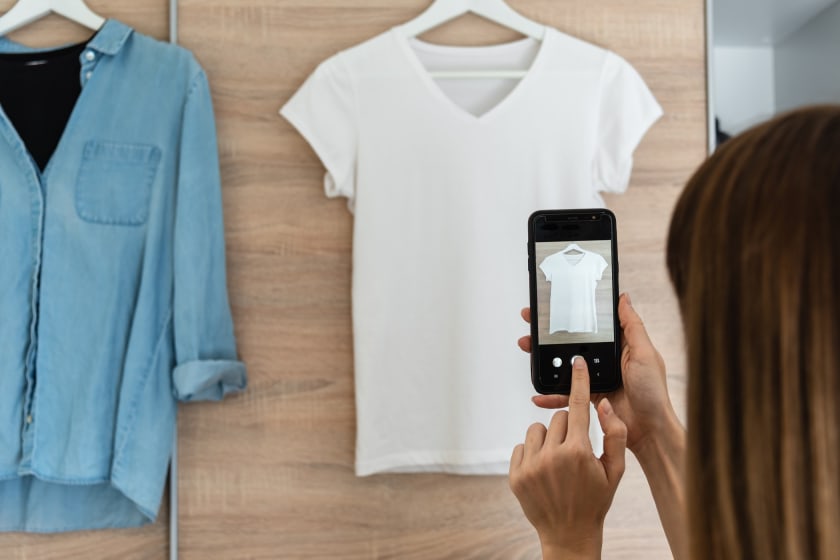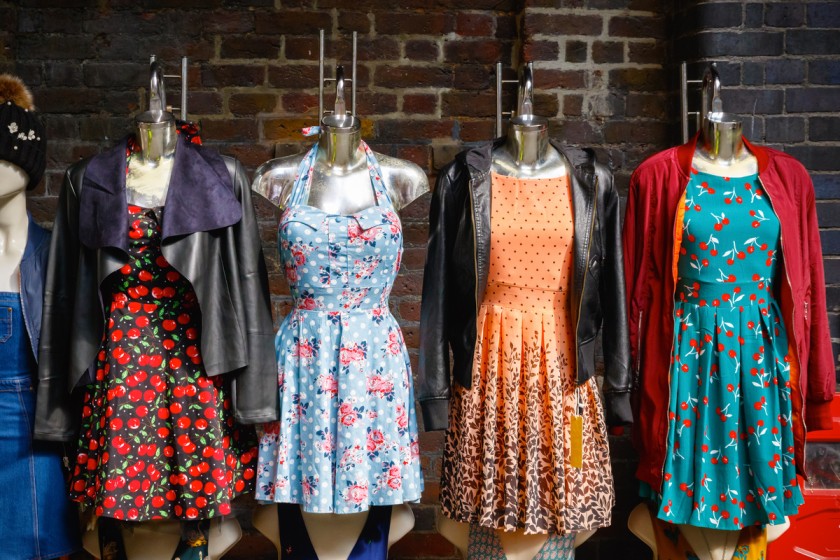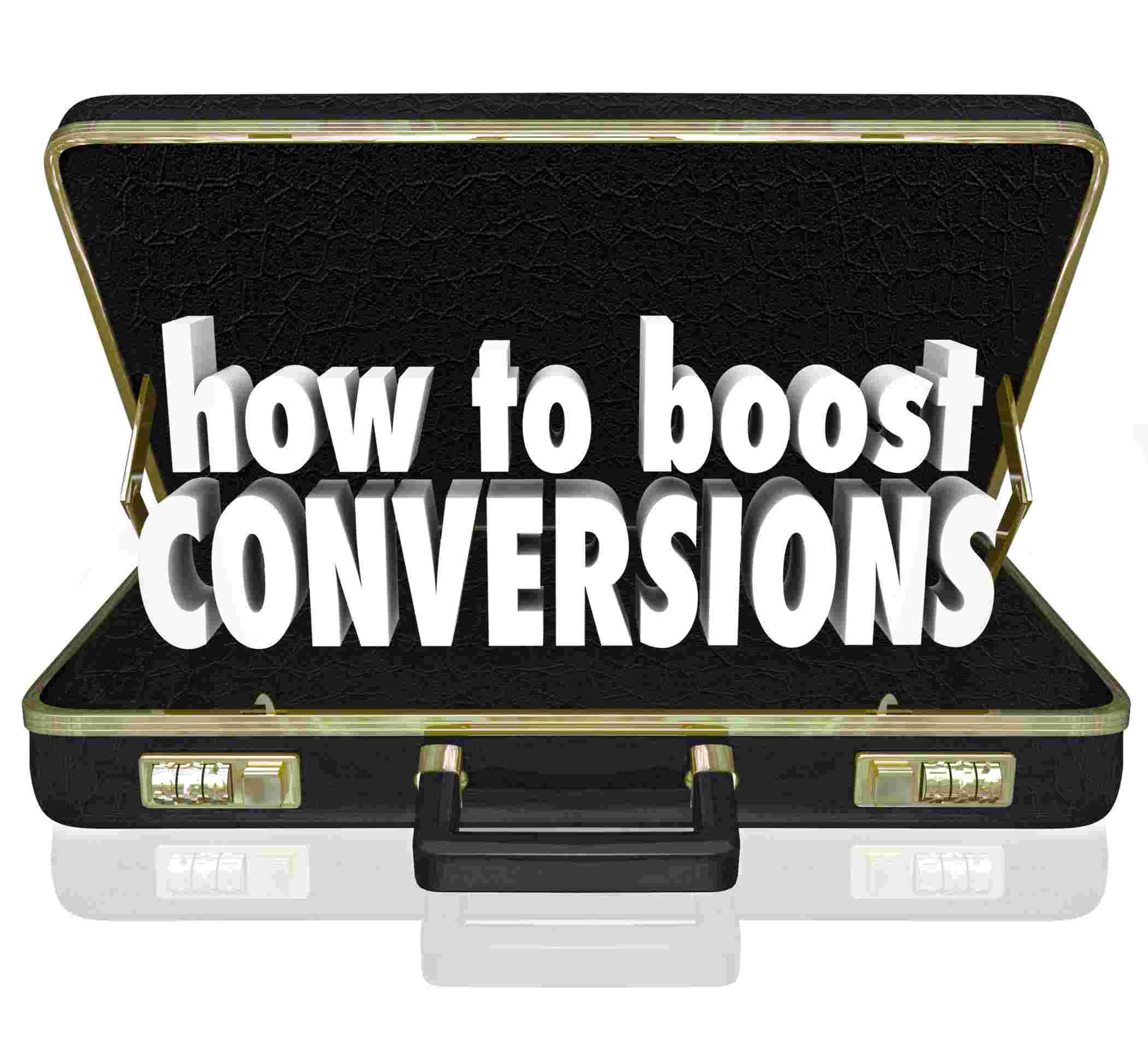Why Use Fashion Marketing Software?



In the recent decade, India’s fashion sector has experienced unprecedented growth. In the coming years, the industry is likely to expand even more. Garment exports are estimated to hit $14 billion by the end of this financial year. All charts linked to fashion are expected to show an upward trend. No wonder there are so many clothing apps.
The success of India’s fashion sector is largely due to technological advancements. It makes the job of the fashion designer easier. For the convenience of the fashion crew, the industry has implemented many measures. There is a use of RFID readers, high-tech machines, and other software programs.
Software applications have proven to be beneficial in practically every field. Software is necessary for every field, including production facilities, corporate offices, hospitals, and similar establishments. It was only natural for fashion people to take advantage of this cutting-edge technology.
Various apparel producers and retailers use fashion software. This software comes in different forms and can help complete multiple tasks. Some of them assist in creating exotic designs, while others may assist in the documentation of corporate facts.
One of the various applications used in the fashion business is Product Data Management (PDM) software. Its main goal is to keep track of information on other areas of fashion, such as fashion marketing and branding.
Why is Fashion Marketing Important?

Fashion marketing is crucial for the industry since it brings the creator’s idea and vision to life. Fashion marketing connects manufacturers’ works from all over the world to wholesale merchants and consumers.
Fashion marketing can help shoppers connect with a company in the fashion sector. The history behind the apparel, the creator’s purpose, and what the brand stands for will all be understood if done right.
A designer must flourish and establish a brand and a trend. When marketing a brand, it is pivotal that marketing aids in the creation of loyal customers and the improvement of the company’s image. Nowadays, with recent developments in technology, fashion marketing is becoming simpler.
How Modern Software and Technologies are Revolutionizing the Fashion Industry
Fashion firms of all sizes and specializations are using technology to understand their clients better than ever before. Artificial Intelligence (AI) will transform brands’ approach to product development processes as data collection attempts get more advanced, emphasizing forecasting what consumers will want to wear next.
Google has already dabbled in user-driven AI fashion design with Project Muze, a 2016 project it ran in collaboration with Zalando, a German fashion portal. The research used Google’s Fashion Trends Report with Zalando’s design and trend statistics to build a neural network to grasp colors, textures, style choices, and other “aesthetic characteristics.” Following that, Project Muze used an algorithm to produce patterns based on consumers’ tastes and in line with the network’s fashion choices.
Amazon is making waves in this area as well. An Amazon initiative led by Israeli experts will use Machine Learning (ML) to determine if a product is “stylish” or not. There is also another enterprise developed by Amazon’s California-based Lab126 R&D arm. It would employ pictures to learn about a specific fashion trend and then recreate it from scratch.
Of course, the results of AI design without humans aren’t always fit for the runway. Many of the patterns developed for Google’s Project Muze users were unstylish scrawls and scribbles. Similarly, other sources have described the Amazon Lab126 project’s design outcomes as “crude”.
Nonetheless, the gap between AI-created and human-created designs is narrowing. DeepVogue, an AI “designer,” came second overall and received the People’s Choice Award in China’s International Fashion Design Innovation contest in April 2019.
Further research and development are required before brands can count on AI-only designer software. On the other hand, AI is already assisting brands in creating and iterating their designs more swiftly.
Tommy Hilfiger and IBM established a collaboration with the Fashion Institute of Technology in 2018. The “Reimagine Retail” project employed IBM AI capabilities to identify:
- Real-time fashion trends in the industry
- Public opinion surrounding Tommy Hilfiger merchandise and runway photographs
- Reappearing themes in popular patterns, shapes, colors, and styles.
Human designers received access to the AI software’s knowledge. They could use it to make smart design choices for their future selection of merchandise.
Why Use Fashion Marketing Softwares?

Here is why one should consider using fashion marketing softwares.
- The software streamlines manufacturing operations.
Manufacturing necessitates the proper management of raw resources. It is challenging to meet the current needs of the apparel industry without the assistance of the right fashion management software.
Retail fashion software streamlines procedures and allows for precise estimation of raw material requirements. The software also gives real-time data on other industrial operations like sewing, dyeing, printing, labeling, and packaging. This feature minimizes errors that cause the delay of bulk order fulfillment.
- It facilitates payment processing and includes a receipt system.
It can be challenging to get an insight into invoicing and transactional business information. However, having such a system for simultaneously managing multiple clients is essential.
Clothing business owners can use retail software to manage several orders with details at once. The program can easily keep track of outstanding credit limitations, bill changes, alterations, and sales and purchase upkeep.
This approach helps shops by providing superior financial liability analysis and simple payment information communication.
- Fashion marketing softwares improve inventory control.
Managing inventory in today’s competitive environment, where the fashion industry has multiple warehouses in various locations, can be challenging.
Retail software provides sophisticated automation solutions for handling a business’s inventory across multiple sites. It tracks stock levels and sends out alerts when supplies are running low. It necessitates the use of powerful inventory management software.
4. These softwares can handle customer and vendor inquiries.
A positive relationship between the customer and the vendor is required to increase the brand’s value.
Retail software allows businesses to keep track of their vendors’ and customers’ data and purchasing habits. Retailers use this information in making strategic choices in the future. As a result, retail software improves the overall company system’s harmony.
5. It enhances in-store cooperation and networking.
Integration is a feature of retail software. This feature works in conjunction with others to achieve the intended business results. Such facilities minimize the need for staff to travel long distances and provide continuous assistance throughout business hours.
6. It allows for easier mobile data accessibility and security.
With the rise in mobile usage, everyone wants their fashion retail solutions on their phone through clothing apps. The software solution now includes a B2B and B2C mobile phone app.
These programs improve the user’s experience. They offer simple search, billing, and checkout choices, as well as security safeguards. As a result, the way fashion retailers conduct their business is improved, and customers have a more convenient shopping experience.
7. The retailers can monitor MIS and financial data.
The ERP system manages the financial data of the company. It delivers real-time transaction details for the company, including earnings, expenditures, debt load, and seller fees.
It allows MIS reports, such as balance reports and accounting records, to be generated whenever necessary, and boosts brand value.
Integrating retail software with ERP solutions can support fashion businesses.
8. Using fashion marketing softwares can increase sales.
Fashion software aids in addressing the fashion sector’s risk factors. It streamlines the system’s entire sales process while also providing easy and versatile functionality. This feature provides business owners with real-time data that helps them increase total sales.
9. It reduces the cost of start-ups.
Software technologies make the process of starting a business less painful. It gives small businesses sophisticated fashion software that, thanks to its features, overcomes the challenges of running a business.
The program is well-designed and can easily suit the needs of any business of any scale.
10. These softwares can improve supply chain management.
Streamlining, tracking, and controlling supply chains is a breeze with retail software, particularly for companies with global concerns. It promotes reduction in cost, higher profitability, enhanced quality of products, better communication, and more.
Conclusion
Businesses can meet expanding corporate issues with the help of well-implemented software. The software automatically adjusts all business demands, which also allows for easy interaction between departments. In addition, the apparel business can use clever techniques to stay above the competitors in this cutthroat retail market.
When a fashion brand is integrated with software, it can help establish a link between online sales, inventory management, and transaction processes. Employees and customers will appreciate how easy the software makes things for them.
Software usage is now widely regarded as a proven way to boost efficiency. It simplifies the job of a fashion designer. It is employed in various industries, and the fashion business can’t be left out! Hence, the sector should promote its application on a bigger scale.
Fashinza is a clothing app that connects brands with manufacturers. Visit our app or website to source materials for your brand.



















